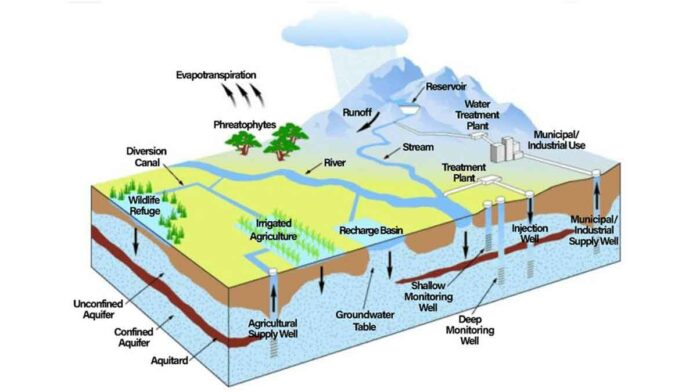Groundwater provides a significant portion of the world’s liquid freshwater supply. These underground water reservoirs are stored in soil and aquifers. It provides water to streams, agricultural lands, and hundreds of millions of people.
Scientists were always curious about how quickly surface water replenishes or “recharges” groundwater stores. But measuring a vast and ephemeral underground resource is easier said than done. A new study has been published in the journal Geophysical Research Letters by Wouter Berghuijs and colleagues. According to the study, the recharge rates can be doubled up.
Scientists used a recent global synthesis of regional groundwater measurements. They created an updated model of groundwater recharge. They discovered that climate aridity accurately predicted how much precipitation trickled into groundwater worldwide. Because arid environments had lower recharge rates than humid environments. The results of the aridity-based model closely matched field measurements. It indicated that previous models vastly underestimated recharge rates.
According to the authors, this discovery has implications for the water cycle. Groundwater is likely to contribute more to river flow and plant water use than previous models predicted. This could have far-reaching consequences for the entire ecosystem.
Groundwater may recharge faster than expected. But the team warns that groundwater is still overused in many places, particularly in arid areas. They claim that groundwater depletion threatens water security in these areas.
More information: Wouter R. Berghuijs et al, Global Recharge Data Set Indicates Strengthened Groundwater Connection to Surface Fluxes, Geophysical Research Letters (2022). DOI: 10.1029/2022GL099010

